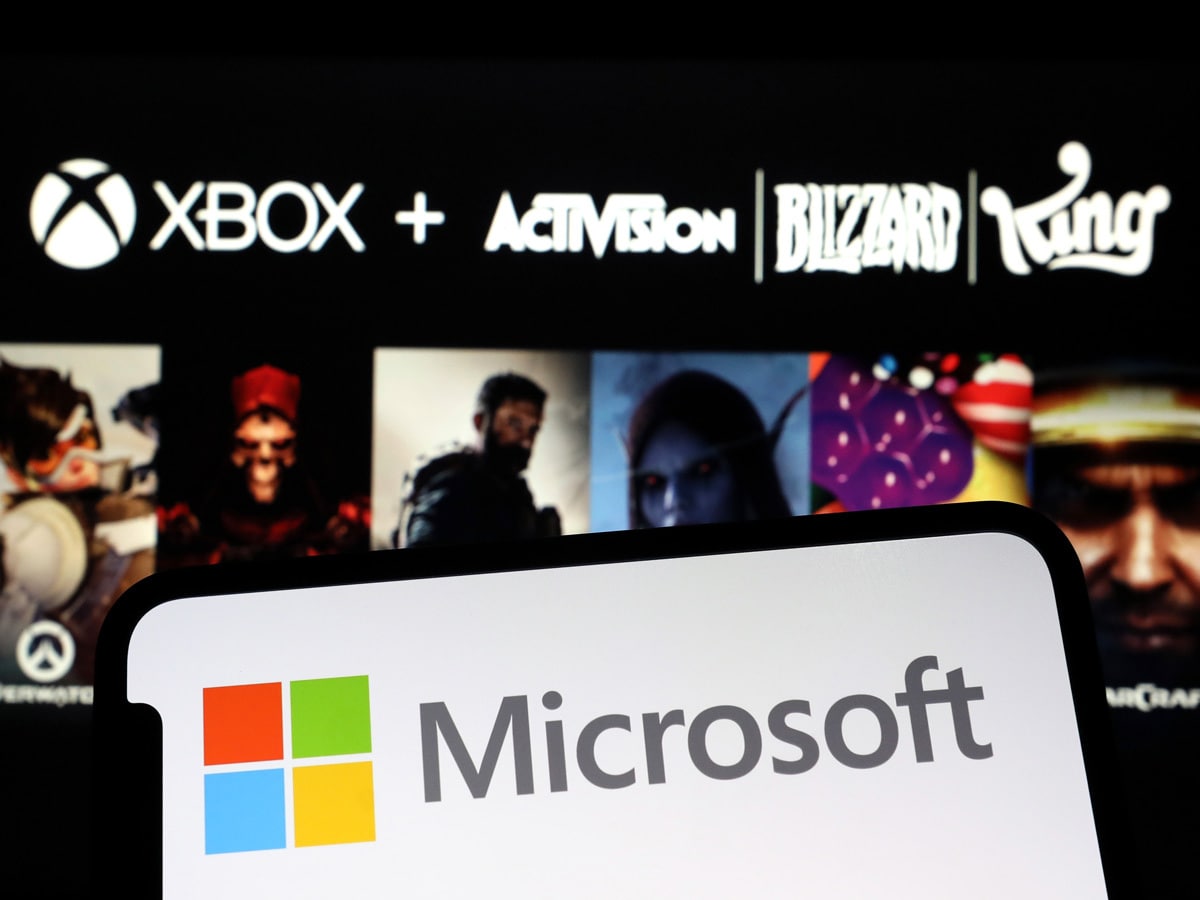With concerns raised from competitors including Sony, antitrust scrutiny of Microsoft’s proposed takeover of Activision Blizzard is stepping up over concerns that the software giant could restrict access of popular titles to its Xbox platform.
- The European Commission has moved its probe of the Activision Blizzard-Microsoft merger into its second phase.
- The gaming industry is expected to be worth $321bn by 2026, according to a recent PwC report.
- VanEck Video Gaming and eSports ETF offers the biggest exposure to Activision.
Activision Blizzard’s [ATVI] proposed merger with Microsoft [MSFT] is coming into the regulatory crosshairs of the European Commission’s antitrust division.
On 8 November, the European Commission warned in a statement of the perceived risk that Microsoft may “foreclose access to Activision Blizzard’s console and PC video games,” particularly well-known titles thought to include Call of Duty, World of Warcraft and Guitar Hero. The commission is therefore moving its review of the merger into its second phase.
The UK’s Competition and Markets Authority (CMA) had already commenced a similar probe of the deal in September, based on concerns that Activision Blizzard titles could be restricted to Microsoft’s Xbox console because of the $69bn merger. Microsoft responded by accusing the CMA of relying on “self-serving” reports from Sony [6758.T], which the CMA described as Microsoft’s “main rival that could be affected” by any such restriction of game availability.
Meanwhile, the deal will face scrutiny from US regulators resolved to prove their determination to curb Big Tech’s market power, as reported by the Financial Times in January this year.
The Activision Blizzard share price gained 9.9% year-to-date to 11 November, driven by a 25.8% rise on 18 January, when Microsoft’s acquisition of Activision Blizzard was first announced.
Competition for talent
In a letter sent to all employees on 8 November, Activision Blizzard’s CEO Bobby Kotick hailed the potential of the acquisition to boost Activision’s ability “to attract and retain the talent” it requires to compete.
“Becoming part of a company with access to talent around the world will help us fill the thousands of open positions we will have over the next few years,” he wrote.
Kotick described the merger as “a long process” which he expected to conclude by the end of Microsoft’s current fiscal year in June 2023.
Andrew Marok, equity research analyst at Raymond James, upgraded Activision Blizzard to ‘outperform’ on 10 November, noting to clients that he feels the likelihood is that the deal will go through despite the regulatory probes and that, regardless, “trends in [Activision’s] core business have improved significantly, making a price drop on a deal break less precipitous for a standalone Activision share price.”
Gaming and esports trend
Besides Sony, other players in the gaming and esports space appear relaxed about the prospects of the Activision Blizzard-Microsoft merger.
“We’re certainly of the belief that [the deal is] a good thing for Microsoft and for the industry,” Take-Two’s [TTWO] CEO Strauss Zelnick recently told The Wrap. “Microsoft is an ally of ours, and if this makes their business more powerful, we think that's good for us.”
The gaming industry has grown rapidly over recent years and looks set to continue, with a PwC report forecasting the industry to be worth $321bn by 2026. Social and casual gaming is driving the expansion, with the pandemic driving a 26% expansion of the industry between 2019 and 2021.
Video games are expected to have gone from 6.1% of global entertainment and media spending in 2017 to 10.9% in 2026. Turkey, Pakistan and India are thought to see the fastest rates of growth globally for the industry.
Funds in focus: VanEck Video Gaming and eSports ETF
This positivity around the industry hasn’t, however, translated into strong share price performances for gaming companies.
The VanEck Video Gaming and eSports ETF [ESPO] fell 33.94% in the year to 11 November, while the Roundhill Video Games ETF [NERD] fell 41.15% over the same period. Both funds saw a boost on 10 November, however, with ESPO gaining 7.73% as equities received a boost from lower-than-expected US inflation figures.
As of 11 November, Activision Blizzard is the VanEck Video Gaming and eSports ETF’s sixth-highest holding, with a 5.35% weighting. The fund doesn’t hold Microsoft but does have a 3.89% weighting in Take-Two. Roundhill’s Video Game ETF holds neither Microsoft nor Activision Blizzard, but as of 11 November Take-Two is its fourth-largest holding with a 5.63% weighting.
Activision Blizzard’s own performance is distorted by the impact of the Microsoft takeover. Since the surge on 18 January, the stock has fallen 9.92%.
Disclaimer Past performance is not a reliable indicator of future results.
CMC Markets is an execution-only service provider. The material (whether or not it states any opinions) is for general information purposes only, and does not take into account your personal circumstances or objectives. Nothing in this material is (or should be considered to be) financial, investment or other advice on which reliance should be placed. No opinion given in the material constitutes a recommendation by CMC Markets or the author that any particular investment, security, transaction or investment strategy is suitable for any specific person.
The material has not been prepared in accordance with legal requirements designed to promote the independence of investment research. Although we are not specifically prevented from dealing before providing this material, we do not seek to take advantage of the material prior to its dissemination.
CMC Markets does not endorse or offer opinion on the trading strategies used by the author. Their trading strategies do not guarantee any return and CMC Markets shall not be held responsible for any loss that you may incur, either directly or indirectly, arising from any investment based on any information contained herein.
*Tax treatment depends on individual circumstances and can change or may differ in a jurisdiction other than the UK.
Continue reading for FREE
- Includes free newsletter updates, unsubscribe anytime. Privacy policy





